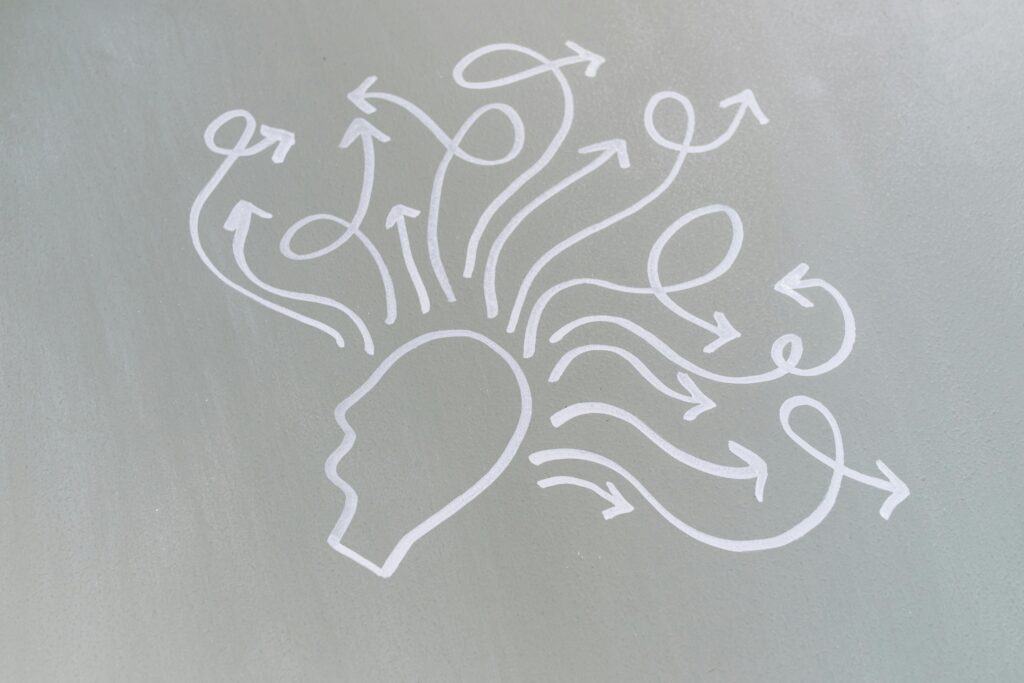
If you’re a mom, you’ve probably heard the term “mental load” countless times. You know the feeling – that overwhelming sense of carrying all the cognitive and managerial tasks for your family. The birthday parties to plan, doctor appointments to schedule, permission slips to remember, and the endless mental catalog of who needs what, when, and where.
But here’s what most conversations about mental load are missing: you don’t actually have a mental load problem. You have an emotional load problem.
The Problem with Calling It “Mental Load”
When we label our overwhelm as purely “mental load,” we’re missing a crucial piece of the puzzle. There’s no such thing as just mental – mental is emotional, is physical. Everything is interconnected through our nervous system, which is why I use the more accurate term “brain-body load.”
Think about it this way: if your overwhelm was truly just mental, you could solve it with a planner. You could create the perfect delegation system, implement a foolproof organizational method, or use a brilliant app to manage everything. It would be like managing tasks at work – systematic and relatively neutral.
But that’s not what happens, is it?
What Research Really Shows About Mental Load
Recent research breaks down what we call “mental load” into three distinct categories:
- Cognitive load – anticipating needs and making decisions
- Managerial load – planning and organizing
- Emotional load – worry, concern, and tending to emotional needs
Here’s the surprising finding: cognitive and managerial load actually have positive associations for parents. They can create feelings of empowerment and family satisfaction. It’s the emotional load that’s toxic – the worry, anxiety, shame, guilt, and perfectionism that weighs us down and prevents us from thriving.
The Real Weight You’re Carrying
Let me paint you a picture. Imagine walking into your kitchen and seeing breakfast dishes in the sink. The event itself is neutral – dishes need to be cleaned. But here’s what often follows:
“No one is helping me. I’m failing at managing this household. I can’t keep up. My husband is useless. I’m raising entitled, lazy children. I’m a bad mom.”
That cascade of thoughts and feelings? That’s your emotional load. And it’s attached to every single task on your mental to-do list.
Every doctor’s appointment carries fears about your child’s health. Every birthday party planning session brings up anxiety about whether you’re doing enough, being a good enough mom, creating magical childhood memories. Every forgotten permission slip triggers shame about your competence as a parent.
Why This Matters So Much
Understanding that your overwhelm is primarily emotional – not mental – changes everything about how you approach solutions. It explains why:
- The perfect planner doesn’t solve your overwhelm
- Delegation feels impossible (what does it mean about you if you can’t handle it all?)
- You feel guilty taking time for yourself
- Simple tasks feel monumentally heavy
- You’re exhausted even when your to-do list isn’t that long
The emotional load is what gets in the way of your flourishing. It’s what prevents you from accessing joy, play, gratitude, and pleasure. It’s what leaves you too depleted for intimacy with your partner or presence with your children.
The Physical Reality of Your Load
I want you to visualize something: a woman trying to physically carry everything at once. She’s got bags in both hands, items balanced on her legs, something on her head, every limb engaged in holding something up.
This image makes the unsustainability obvious. Her body will eventually give out – she’ll have to put something down because she physically cannot maintain this forever.
Yet we expect ourselves to mentally and emotionally carry everything indefinitely. We don’t apply the same logic to our brain body load that we would to physical carrying capacity.
The Path Forward: A Brain Body Approach
Since your overwhelm isn’t just mental, the solution can’t be just mental either. You need a holistic, brain-body approach that addresses:
- The nervous system patterns keeping you stuck in survival mode
- The emotional programming that makes every task feel heavy
- The somatic responses in your body that signal danger when there isn’t any
- The inner parts (anxiety, inner critic, perfectionist) that add commentary to every situation
This isn’t about finding better systems or getting more organized. It’s about understanding what you’re actually experiencing and addressing the root cause – those unprocessed emotions living in a dysregulated nervous system.
Making the Invisible Visible
The first step is awareness. You can make your cognitive and managerial load visible by writing everything down (tools like Fair Play cards are great for this). But your emotional load requires deeper attention.
Start asking yourself: What is the emotion connected to this task that’s making it feel so heavy? What does it mean about me if I delegate this? What am I afraid will happen if I put this down?
You’re Not Alone in This
If this resonates with you, know that you’re not broken, and you’re not alone. The brain-body load you’re carrying was inherited from generations of women before you, reinforced by cultural messages about motherhood and worth.
But here’s the beautiful truth: it’s possible to release this load. Not through better planning or perfect systems, but through the inner work of understanding your nervous system, processing emotions, and developing genuine self-compassion.
Your overwhelm isn’t a character flaw or a time management problem. It’s a signal that you’re carrying more than just tasks – you’re carrying the emotional weight of generations. And it’s time to put some of that down.
+ show Comments
- Hide Comments
add a comment